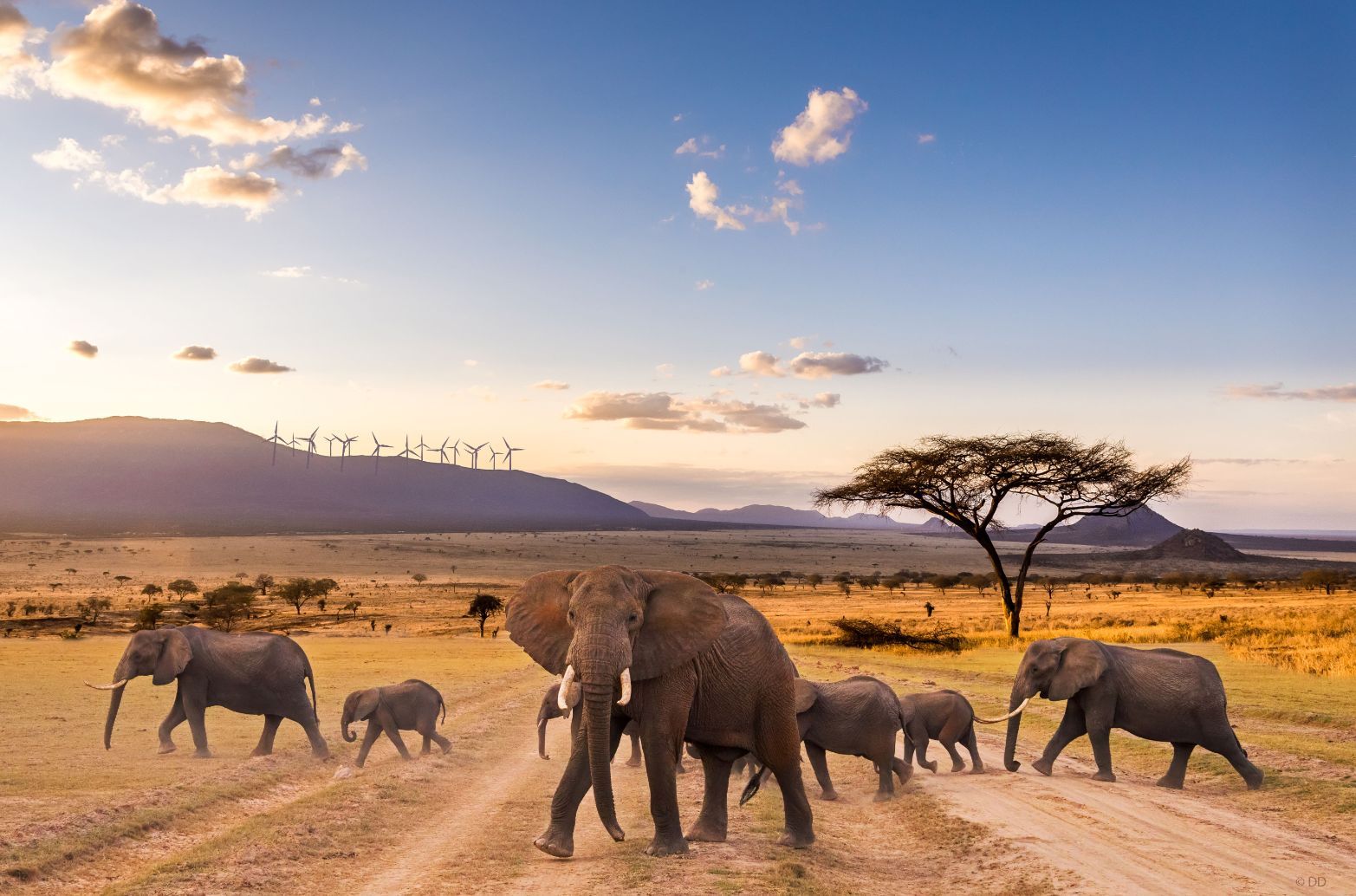Green hydrogen – what can East Africa learn from Oman?
)
With green hydrogen seen as a renewable resource that’s increasingly vital for a sustainable future, Africa is becoming a frontrunner in its production.
In advance of TECS24, Rumaitha Al Busaidi, Business Development Manager at Hydrom, talked to EnergyNet about Oman’s positioning as a green energy hub, and the learnings to be shared with other African nations.
Named by Reuters as one of twenty-five trailblazing women leading the fight against climate change and listed by the BBC as one of 100 inspiring and influential women from around the world in 2023, Rumaitha was headhunted by Hydrom from her job at Fisheries Development Oman for her new role.
With ambitious targets to produce up to 8.5 million tonnes by 2050, green hydrogen is something the country has embraced with a passion.
“Omanis are known for only taking things seriously when they really believe in something,” says Rumaitha.
“We started looking at the potential in 2021. A group of like-minded people came to the government, pitched it, and said it would be feasible to switch to green hydrogen to power Oman. As soon as the research came out, Oman moved fast.”
Hydrom was launched in 2022 following His Majesty Haitham bin Tarik Al Said's directive to structure and accelerate the development of the sector in Oman.
“We now have six agreements in place, with up to 925,000 tonnes of green hydrogen expected by 2030. We are way ahead of our targets. If we believe in something, we really go for it.”
As Business Development Manager at the company, Rumaitha’s role is to attract people to Oman and to share the learnings of the country with the rest of the world.
“We have put our ducks in a row. We would love to share our experiences, and as a main exporter for Oman, we are also on the lookout for new partnerships and collaborations.”
Oman is moving swiftly on its green hydrogen journey.
As Rumaitha points out, “It’s exciting – it’s the opposite of every stereotype about government! We are working faster than a lot of private sector companies. Plus, we have a united front when it comes to leadership, with the freedom to innovate and create.”
With a background that spans media, public policy, and investments, there are key things that experience has taught her in terms of bringing an idea to fruition.
“One big thing is to always communicate and brainstorm ideas. No idea is stupid or foolish. With the help of a team, you can achieve virtually anything. Someone will always know the answer.”
“Being able to communicate is vital. Plus perspective – being able to put yourself in the other person’s shoes. What will make them interested in what you are saying? “A lot of the time, it’s about numbers, so always think how you can share the data. This makes things move a lot faster.”
She also stresses the importance of taking care of yourself and looking after your mental well-being. “
We are still frantically catching up after Covid, with some of us still cocooned and introverted.”
Communication plays a big role in wellbeing. “We don’t do a lot of that. Often, we focus on our business and don’t show our other side as human beings. But communication is what brings people together, and is what people remember you by.”
We asked Rumaitha what she was most looking forward to at the Tanzania Energy Cooperation Summit.
“People! Getting to meet people. Plus brushing up on my Swahili (my grandmother is from Kenya). I’m really looking forward to connecting and learning from others and sharing knowledge and seeing what I can do to help.”
She points out that conversations in the multilateral space are so important.
“Hydrogen is such a small community, and finding ways to build dialogues is very important. For example, using the multilateral space at COP28 for mutual recognition of the specifications for green hydrogen was very useful. This is part of the importance of events.”
Rumaitha sits on the Arab Youth Council for Climate Change and her 2021 Ted Talk, which looked at women as key to our climate future, has garnered more than a million views. What advice would she give to young people, particularly young women, setting out on a career in the energy sector?
“Navigating the space of the energy sector can be intimidating – especially if someone tells you to stay in your lane. Start mapping your plan and see who can help you navigate the space. You’ll find there are people who would love to help. Network as much as possible. Women in particular tend not to network enough – there is data to prove this! And don’t just listen. Share your thoughts and show what you can bring to the table.”
We had to ask about soccer – Rumaitha is also known for being the first female soccer analyst in the Arab World, after being capped for the national women’s side.
“Funding for the team was stopped in 2008, so I went on the radio every week with the team to plead for our cause. We didn’t get the results we wanted, but it was my first attempt at public speaking, and I was given a radio slot to cover football matches and European league games as a result.”
She is also the youngest Omani woman to set foot on the South Pole. After a bet with her grandfather, who thought it wasn’t something that could be done by a woman, she completed the trek the following year.
Rumaitha says, “It’s OK to do many things at once. Often, we grow up thinking that it’s frowned upon to do more than one thing. But, if you’ve found your purpose, you can connect every single thing you do with that purpose. It’s OK to have more have more than one thing that you’re good at. Find the hook and connect.”
Rumaitha Al Busaidi, Business Development Manager at Hydrom Oman, will be speaking in Oman’s Green Hydrogen Strategy & East Africa’s Plans - What Lessons Can Be Exchanged? at TECS 24.

